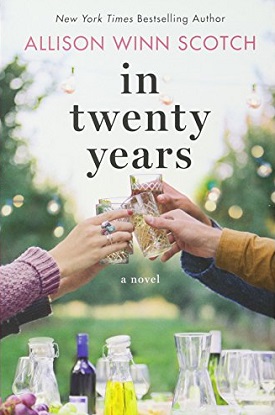 I’m delighted to welcome one of my favorite authors, Allison Winn Scotch, back to Colloquium.
I’m delighted to welcome one of my favorite authors, Allison Winn Scotch, back to Colloquium.
She is the best-selling author of The Department of Lost and Found, Time of My Life, The One That I Want, The Song Remains the Same, and The Theory of Opposites.
Her new novel, In Twenty Years, looks at six college students who shared a house during college, twenty years ago. They were certain they would always be friends, but when Bea, their acknowledged ringleader, died, the group splintered. Now most of them are estranged from each other, but the remaining five reluctantly gather at that house on the eve of what would have been Bea’s fortieth birthday.
They bring with them old grudges, unrequited feelings . . . and secrets.
Catherine is now the CEO of a domestic empire and her husband, Owne, is a stay-at-home dad. They were college sweethearts but their marriage is on the brink of destruction. Lindy, a successful musician, is approaching middle age in an industry that’s focused on youth. She’s self-destructing while grappling with her identity. Annie curates her life on Instagram and Facebook, but it is not at all what it appears to be in those carefully designed social media posts.
So many dreams began for the group in the place to which they now return, hoping to find healing as they confront their pasts.
The Story Behind the Book: In Twenty Years
Some people approach forty with grace, with the confidence that comes with accrued wisdom, with the assuredness of finally knowing what they’re doing. I was not one of these people. As my fortieth birthday loomed, I, a hopeless optimist who can almost always find the positive in just about anything, stared back at it with gloom, with a heavy cloud of melancholy.
Forty.
Really?
I didn’t feel forty. I certainly didn’t think I looked forty. And I really didn’t think that I acted forty.
Forty felt like the end of something for me, though I wasn’t sure what. My youth? The delusion of my youth?
Certainly, I’d long since surrendered to adult responsibilities: two children, a mortgage, a long and steady marriage, a bunch of misbehaved dogs. My days were filled with school forms and carpools and dinner schedules and deadlines. Really, I’d left my carefree life behind ages back. So why did forty feel so daunting?
It was here, in this grey area, in this quicksand, that I found inspiration for In Twenty Years. In this day and age of social media, it’s hard not to be reminded of our younger selves nearly all the time. My Facebook feed is jam-packed with college friends, all of whom still resemble their younger selves, maybe with a few more lines around their eyes, maybe with a little less hair (the men, exclusively). And I would gaze at these faces, at their status updates, and wonder where the time had gone . . . how it felt, well, simply impossible that twenty years had passed between then and now. That, when I closed my eyes, it really felt like just yesterday. And yet, with all the proof of my very adult life, I knew this was impossible too.
It turns out, I wasn’t alone in my musings either. As my friends stood on either side of forty, it became a common discussion: how did we get here? It’s not that we weren’t happy – many of us were. Rather, simply that life had gone on so quickly, and even if we were active participants, looking back, it was also hard not to feel like bystanders. It’s also not that we weren’t grateful – we’ve all lost friends and loved ones along the way and understood how precious it was to simply be alive.
Since my graduation from the University of Pennsylvania in 1995 (!!!), I’d always felt a kinship with the people I met there, as well as the actual campus itself. And as my twentieth college reunion approached, it felt natural to stage the book at the place which I sometimes remember as the happiest times of my life, and other times, have a firmer reality check, in which I recall how claustrophobic I felt my senior year, how miserable my romantic trials and endless break-ups with my boyfriend made me. And I wrote the book through this lens: how easy it is to distort the truths of our past, how easy it is to forget, and really, how easy it is, if you allow yourself, to remember. Also, to consider with naked honesty how we get away from the people we wanted to be back then, sometimes for better, sometimes for less.
As I wrote, I found myself tripping down lanes of nostalgia, of silly pranks, of misguided youthful indiscretions, of mistakes and triumphs and highs and lows that somehow define your years in college. Really, of how invincible I felt, many of us felt, at twenty. Forty was truly ancient. Geriatric. My characters felt this way too, and now, smack in the middle of their lives, they have to wrestle with the reality that no one is invincible, no one is offered the promise of their youthful dreams.
Forty, it turns out, isn’t so bad. In fact, it’s really no different than thirty-nine or thirty-six. (I’m not naïve enough to say it’s no different than twenty-nine.) Sometimes, I still stutter when asked my age, but it’s not because I’m not grateful for all of my years; rather, I think that it will always be impossible to believe that our youth gets further and further away. There’s no chance to revisit it, no chance to go backward. But so what? As my characters discover: who ever said that who we were then is who we need to be now? I can be grateful for my time at Penn, for the people I loved there, for the knowledge gained, and equally grateful for the sturdiness of my life now.
This doesn’t stop me from peering closer at the faces on Facebook and remembering way back when. But it also doesn’t stop me from looking forward, from wondering about the next twenty years, to when we’ll all gather at our fortieth college reunion and say: “Wow, I sure don’t feel sixty! Where could the time possibly have gone?”
Meet Allison
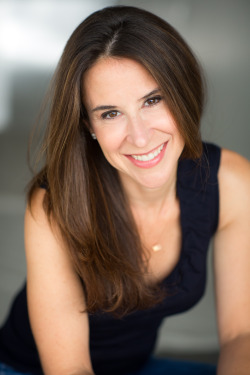
Allison Winn Scotch was born and raised in Charlottesville, Virginia. She says she had “a funny slightly-Southern drawl but otherwise found my calling among all the flannel and the grey skies” Her mother was a teacher who encouraged her children to read and used to mail vocabulary words the them when they were away at camp in the summer. She attributes those “seeds of literature, coupled with an active imagination,” to her belief that she could write fiction.
She graduated cum laude from the University of Pennsylvania with a Bachelor of Arts in Honors History and Concentration in Marketing from the Wharton School of Business. She dabbled a bit in public relations, marketing, and internet worlds before discovering that she wanted to work for herself from home and get paid to write full-time. So she spent eight years working freelance, contributing articles on a wide variety of topics to virtually any magazine published, including Glamour, Self, Shape, Redbook, Men’s Health, Women’s Health, Family Circle, InStyle Weddings, Bride’s, Cooking Light, Parents, and American Baby. She penned hundreds of celebrity profiles and, in the process, “met some amazing and talented people.”
Allison says that when she’s not “planted in front of the computer (which is nearly always – seriously, ask anyone who knows me; I’m here – send me a note!),” she’s I’m hiking, running, doing yoga, reading, listening to music, negotiating with her teenagers, or hanging out with her family and their dogs in their Los Angeles home.
Connect with Allison at her website, or on Facebook, Twitter, or Instagram.

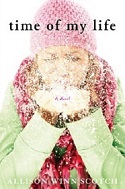
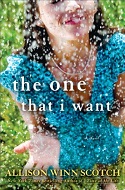
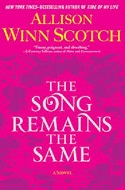
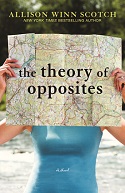
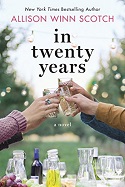
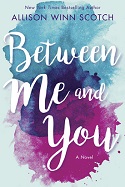
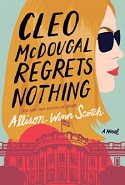
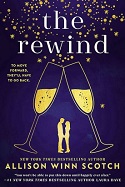
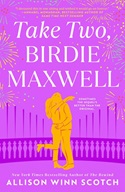
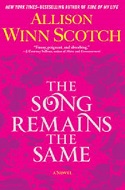


Comments are closed.